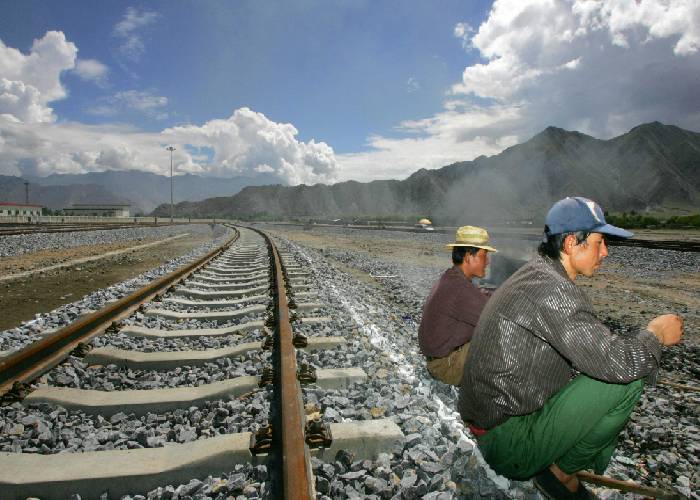×
The Standard e-Paper
Stay Informed, Even Offline

Workers take a break sitting on the railway tracks. [Courtesy]
China has occupied Tibet against the will of the Tibetan people for nearly three generations now. Its claim to Tibet has no legal basis and rests solely on self-serving historical narrations which are Sino-Centric, inaccurate and highly misleading.







